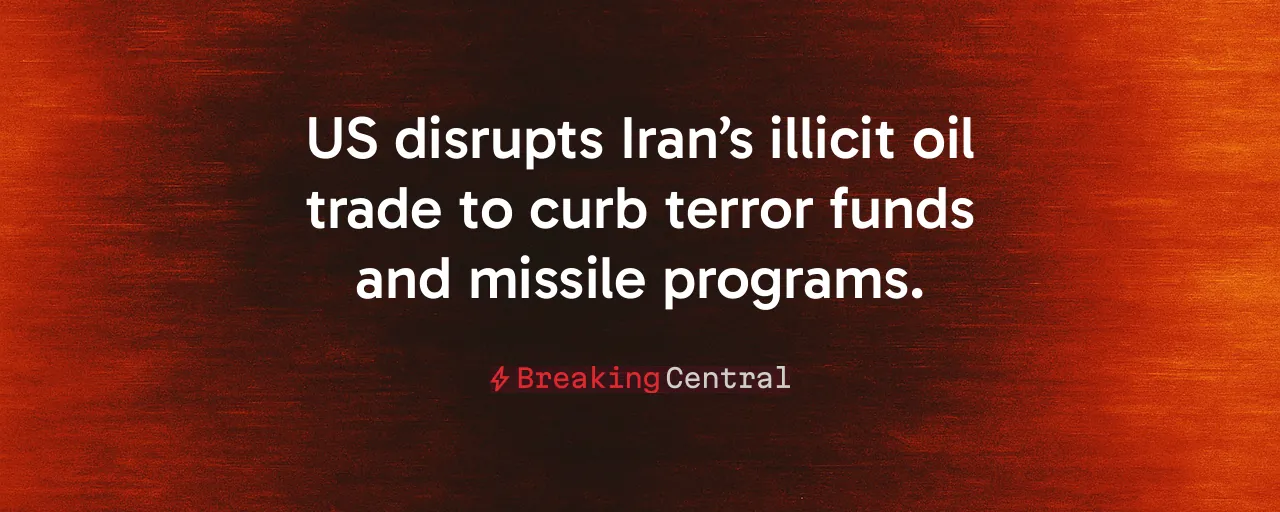A Bold Strike Against Iran's Shadow Network
The United States has taken decisive action to disrupt Iran's illicit oil trade, sanctioning 22 entities linked to a sprawling network that funnels money to the Islamic Revolutionary Guard Corps-Qods Force. Announced on July 9, 2025, by the Department of State, this move targets front companies in Hong Kong, the United Arab Emirates, and Türkiye, which have moved hundreds of millions of dollars to support Tehran's campaigns of terror and ballistic missile programs. The goal is clear: choke off the financial pipelines that enable Iran's destabilizing activities across the Middle East.
This network, described as a shadow-banking system, relies on intermediaries to disguise the origins of Iranian oil sales. By targeting these entities, the U.S. aims to weaken the IRGC's ability to fund proxy militias and develop weapons that threaten regional stability. The sanctions build on a broader strategy to hold Iran accountable, reflecting a commitment to protecting American interests and those of its allies.
Why Iran's Oil Trade Matters
Iran's illicit oil exports are a lifeline for the IRGC, generating revenue that sustains its operations. Treasury Department records show these front companies have facilitated transactions worth hundreds of millions, directly supporting logistics for proxy groups in Syria, Yemen, and Lebanon. The IRGC's reach extends beyond borders, orchestrating attacks that destabilize governments and endanger civilian lives.
Historically, cutting Iran's oil revenue has proven effective. Between 2018 and 2020, U.S. maximum-pressure sanctions slashed Iran's oil exports from 2.5 million barrels per day to under 1 million, forcing Tehran to the negotiating table. Today's sanctions aim to replicate that leverage, ensuring Iran faces consequences for its defiance of international norms.
Closing Loopholes in Global Enforcement
Despite U.S. efforts, loopholes persist. Small Chinese refineries continue to purchase Iranian oil, while lax maritime tracking allows tankers to evade detection through ship-to-ship transfers. The Financial Crimes Enforcement Network noted in June 2025 that Iran uses falsified certificates to mask oil origins, complicating enforcement. These gaps undermine the sanctions' impact and prolong Iran's ability to fund chaos.
Additional enforcement could enhance effectiveness. Expanding secondary sanctions on banks and insurers that handle Iranian transactions would tighten the net. The Department of Justice could also ramp up seizures of sanctioned cargoes, sending a clear message to violators. Cooperation with allies like Israel and Gulf states to interdict illicit shipments would further isolate Iran's shadow fleet.
Lessons From Past Successes
History shows that sustained pressure works. From 2012 to 2015, oil and banking sanctions crippled Iran's economy, leading to the Joint Comprehensive Plan of Action negotiations. When the U.S. reimposed maximum pressure in 2018, Iran's oil revenue plummeted by over $50 billion annually, limiting the IRGC's operational capacity. These outcomes underscore the power of economic leverage when applied consistently.
Today's action aligns with National Security Presidential Memorandum-2, issued in February 2025, which restored a hardline approach to Iran. By targeting the shadow-banking network, the U.S. signals its resolve to confront Tehran's aggression, from missile proliferation to proxy warfare.
Balancing Pressure and Precision
Sanctions are not without challenges. Critics argue they harm Iranian civilians, pointing to inflation and medicine shortages. However, U.S. policy includes humanitarian exemptions to ensure essential goods reach those in need. The real issue lies in Iran's regime, which prioritizes military spending over its people's welfare. Strengthening these exemptions while tightening enforcement on illicit trade strikes a necessary balance.
Global coordination is critical. A U.S.-led task force with European and Asian partners could enhance transparency in financial hubs like Hong Kong, where shell companies thrive. By incentivizing jurisdictions to crack down on evasion, the U.S. can maximize sanctions' effectiveness without alienating allies.
A Vision for Stability
The latest sanctions mark a step toward a safer Middle East. By starving the IRGC of funds, the U.S. protects its allies and curbs Iran's ability to sow discord. This approach prioritizes accountability, ensuring that nations sponsoring terror face real consequences.
Continued vigilance is important for the U.S. Diplomatic efforts to restore multilateral sanctions at the United Nations could amplify pressure on Iran. Pairing economic measures with robust maritime enforcement and intelligence-sharing will close gaps in the current system. The path forward requires resolve.
Ultimately, these sanctions reflect a commitment to global security. They send a message to Tehran: end the terror campaigns, halt missile development, and engage in good faith, or face unrelenting pressure. The choice lies with Iran's leaders, but the U.S. stands ready to defend its interests and those of its partners.
